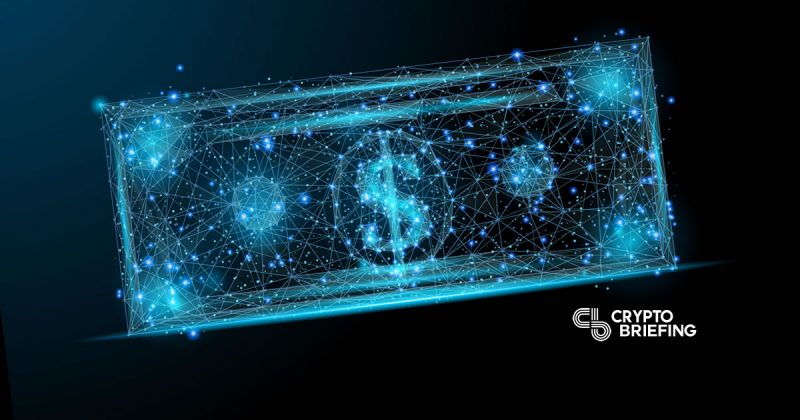
Federal Reserve Digital Dollars, Think Tank Releases Plan for Roll Out
A think tank led by former CFTC officials is put forward a plan for the U.S. Federal Reserve to tokenize the dollar.
A think tank released its plan on how the U.S. government should roll out a digital dollar. The digital dollar wouldn’t replace cash but instead act as a “third form of money” under control of the Federal Reserve, said the plan.
How to Launch a Tokenized Dollar
The Digital Dollar Project, a partnership between the Digital Dollar Foundation and Accenture, has published a whitepaper detailing how the U.S. government can launch a central bank digital currency (CBDC).
Led by a group comprising former U.S. government officials, including the former chair of the Commodities Future Trading Commission J. Christopher Giancarlo, the project’s goals are to educate policymakers and propose a national CBDC strategy in the country.
According to the whitepaper, tokenizing the dollar would allow the U.S. to maintain its position as the world’s reserve currency by expanding the capabilities of the dollar. Ultimately, widespread adoption of a new dollar would serve U.S. government interests.
The paper also makes a case for leveraging the digital dollar in crisis relief. Millions of Americans have had to wait for paper stimulus checks to arrive. A system built on digital dollars would allow near-instantaneous relief disbursement.
The proposed digital dollar would be built on a “two-tiered distribution architecture,” where commercial banks and other regulated financial institutions would act as intermediaries between the U.S. Federal Reserve and ordinary people using the tokenized dollar.
These regulated entities “would exchange reserves for digital dollars to be distributed to end-users much in the way they currently do when issuing physical cash to customers through ATMs,” the whitepaper explained.
Tokenization Would Begin in Commercial Banks
Commercial banks would be required to exchange a portion of their reserves for the tokenized dollar to encourage them to buy into the system. The tokenized dollars held in reserves would then be distributed to consumers via mobile phone apps or various cards, said the think tank.
While the expansion of the new dollars would begin in commercial banks, other institutions would be able to participate in its adoption. While there are still no concrete requirements for the technology that would facilitate the distribution and use of the tokenized dollar, the Digital Dollar Project said that it would, at the very least, be “inspired” by distributed ledger technology.
David Treat, the senior managing director at Accenture, told LedgerInsights that they are open to all forms of public-private collaboration on this matter. “While Central Bank backing is implicit in CBDC, the use cases, services, and infrastructure will create opportunities for many to participate,” he said.
When it comes to the privacy of the proposed digital dollar, the think tank recommended that the government should “follow the current treatment of cash.” Such treatment would mean that tokenized dollars could have privacy thresholds below $10,000, similar to paper dollars.
Nevertheless, privacy remains a looming concern for citizens who fear government surveillance of money. For now, Bitcoin and privacy-coins still remain the best way to send digital payments.
